TARGETS OF BIGOTRY OP-ED
Survey reveals enormous variation in intolerance among citizens of SADC countries
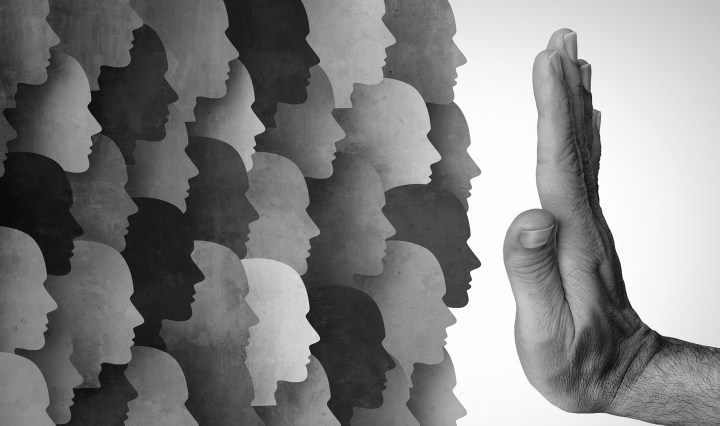
As democracy declines around the world, intolerance is growing apace. When intolerance begins to rise, it is frequently the case that there are particular targets, and few targets are more choice than migrants or homosexuals.
Just go back to the rising intolerance spawned by Donald Trump and his “war” against illegal immigrants and the lunatic idea of building a wall across the US. Or consider the profoundly draconian legislation against homosexuals by Yoweri Museveni and the Ugandan government.
A few years ago, in their book How Democracies Die: What History Reveals About Our Future, Steven Levitsky and Daniel Ziblatt made a strong argument that the “soft guardrails” of democracy were underpinned by tolerance. This was defined in two ways: mutual toleration and institutional forbearance.
At the risk of oversimplifying these principles, the former means treating political others as “opponents” and not “enemies, and the latter means not using the power of political incumbency to game the political field against opponents: for example, not trying to skew the electoral playing field against other political parties.
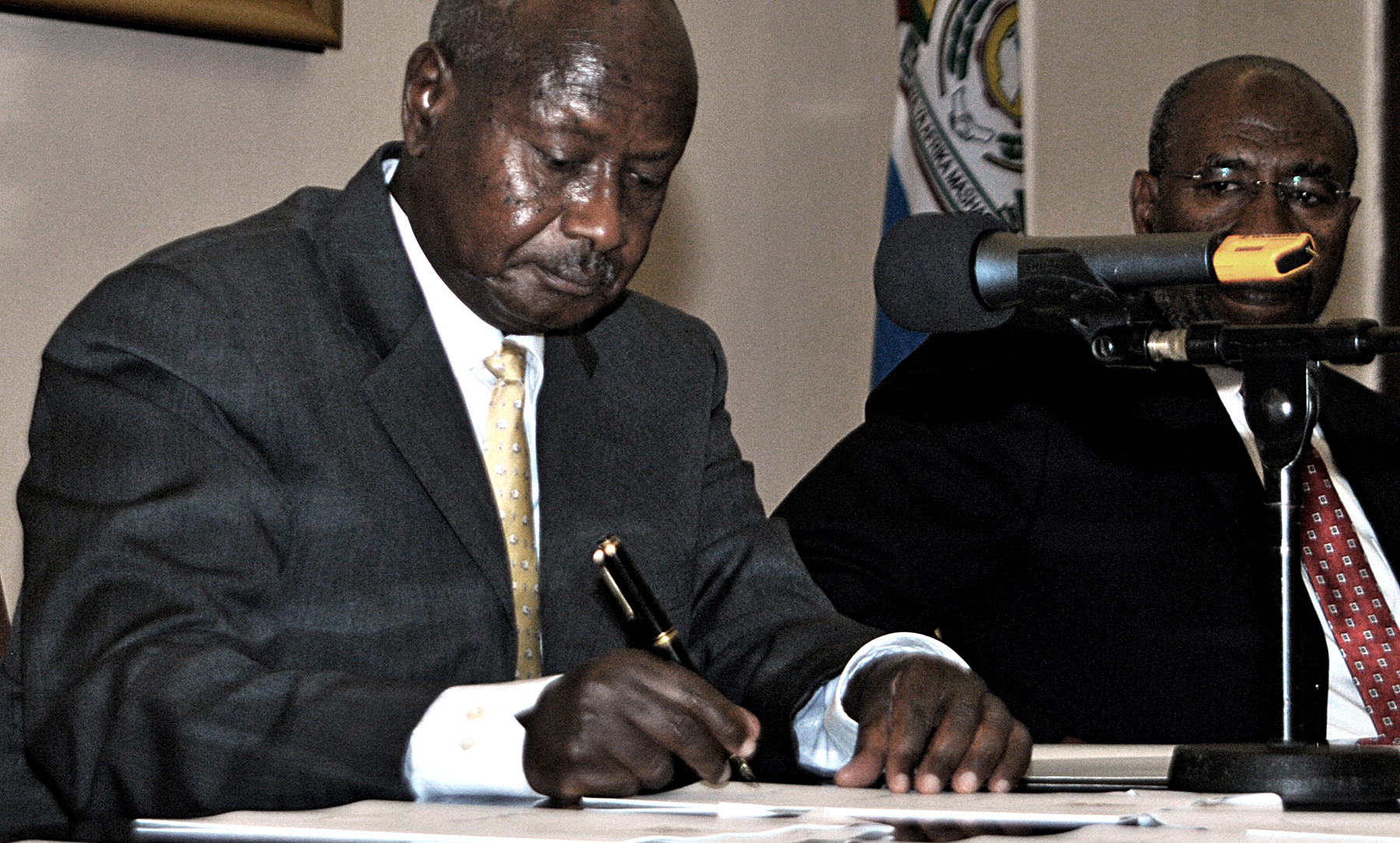
Ugandan President Yoweri Museveni signs the anti-gay legislation in Entebbe, Uganda, on 24 February 2014. (Photo: EPA / Ronald Kabuubi)
Zimbabwe is replete with examples of how both mutual toleration and institutional forbearance have been totally abandoned. Opposition political parties, civil society organisations, and even churches on occasion have been cast as enemies; in fact, anyone or any organisation that espouses different political views receives the epithet of “enemy”.
Interestingly, Malawi, Mozambique and Tanzania, who report being most tolerant of other religions, also have the largest proportions of Muslims. Botswana, Eswatini, Mauritius and South Africa are largely intolerant.
On top of that, the endless resort to discriminatory or draconian legislation demonstrates the complete absence of institutional forbearance: it is hard to see that the proposed Private Voluntary Organisations Act or the “Patriot provision” in the amended criminal law are anything but the abandonment of institutional forbearance.
However, while the Zimbabwean government is always considered an outlier among SADC countries, can it be said that all other SADC countries are marked by tolerance?
This was tested recently by looking at the views of SADC citizens provided in the Afrobarometer Round 8 (2019/2021) surveys to which our researchers were given access. Looking at 12 SADC countries – Angola, Botswana, Eswatini, Lesotho, Malawi, Mauritius, Mozambique, Namibia, South Africa, Tanzania, Zambia and Zimbabwe – four questions about tolerance were examined.
The questions were about who one would like as a neighbour among:
- People of other religions;
- Other ethnic groups;
- Immigrants and foreign workers; and
- Homosexuals.
The findings were very interesting.
Overall, there is enormous variation in these 12 countries in their overall tolerance.

The numbers beside each country reflect their comparative overall ranks. Therefore, Malawi is the most tolerant and Mauritius the least.
Other religions as neighbours
Most SADC citizens are religious, mostly belonging to Christian religions (82%), of whom 24% are Protestant, 39% are “Independent” and 8% are Catholic. The outlier is Mauritius where nearly 50% are Hindu. However, there are great variations in the attitudes of SADC citizens to people from other religions being their neighbours, and the variations are very interesting.
Citizens in SADC countries are much less tolerant of migrants or foreign workers generally. However, the trend in tolerance is the same as for religion and ethnicity.
Malawi, Tanzania and Zambia are clearly the most tolerant of other religions, while the most intolerant are Mauritius and Eswatini. But it is interesting that, in five of the 12 SADC countries, fewer than half describe themselves as tolerant of members of other religions in proximity. Interestingly, Malawi, Mozambique and Tanzania, who report being most tolerant of other religions, also have the largest proportions of Muslims. Botswana, Eswatini, Mauritius and South Africa are largely intolerant.
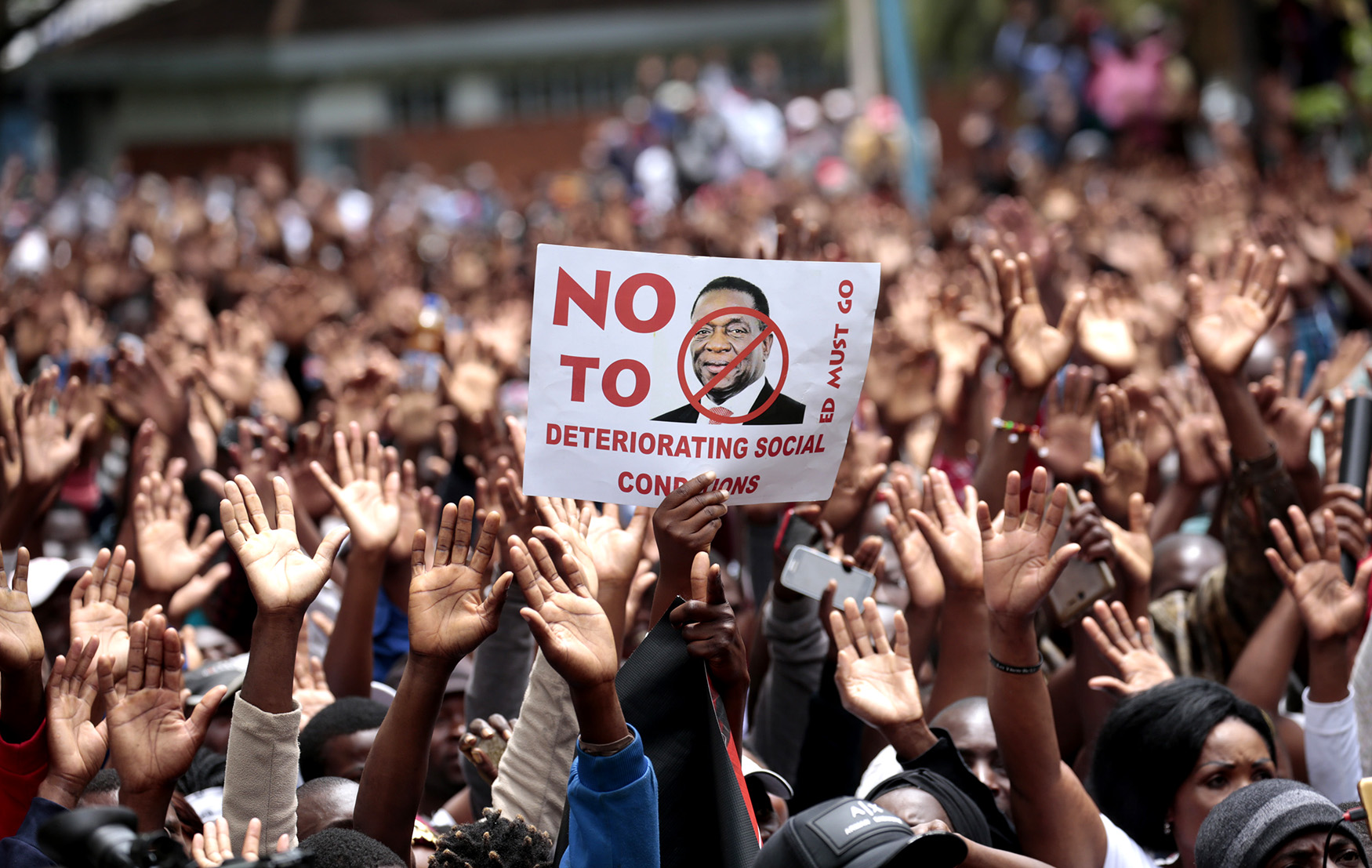
Movement for Democratic Change Alliance members gather at the Africa Unity Square in Harare, Zimbabwe, on 29 November 2018, to protest against the economic situation in the country. (Photo: EPA-EFE / Aaron Ufumeli)
Other ethnic groups as neighbours
Ethnicity can be a serious problem and is so in many African countries and is to some extent in SADC. However, as with religion tolerance, Malawi, Tanzania, Mozambique and Zambia are the most tolerant. As with religion, Eswatini, Mauritius and South Africa are the most intolerant, but the citizens of Botswana are slightly more tolerant than they are about different religions.
Immigrants and foreign workers
In light of the marked rise in xenophobia in South Africa in the past decade, it is interesting to see the extent to which these attitudes are echoed by other SADC citizens, especially in a region where there is a long history of migrant workers over many decades.
Rural folk in the SADC were more tolerant than their urban counterparts when it came to religion, ethnicity and migrants, but more intolerant of homosexuality.
Interestingly, citizens in SADC countries are much less tolerant of migrants or foreign workers generally. However, the trend in tolerance is the same as for religion and ethnicity. Malawi, Tanzania and Zambia are the most tolerant, and Mauritius and South Africa the least.
It is also worth noting that the arguments about South Africa being swamped by migrants are refuted in the latest South African census. International migrants are only 3% of South Africa’s current population, with Zimbabweans being 45% of this 2.4 million, followed by Mozambique (18.7%) and Lesotho (10.2%). These three countries account for 74% of all migrants.
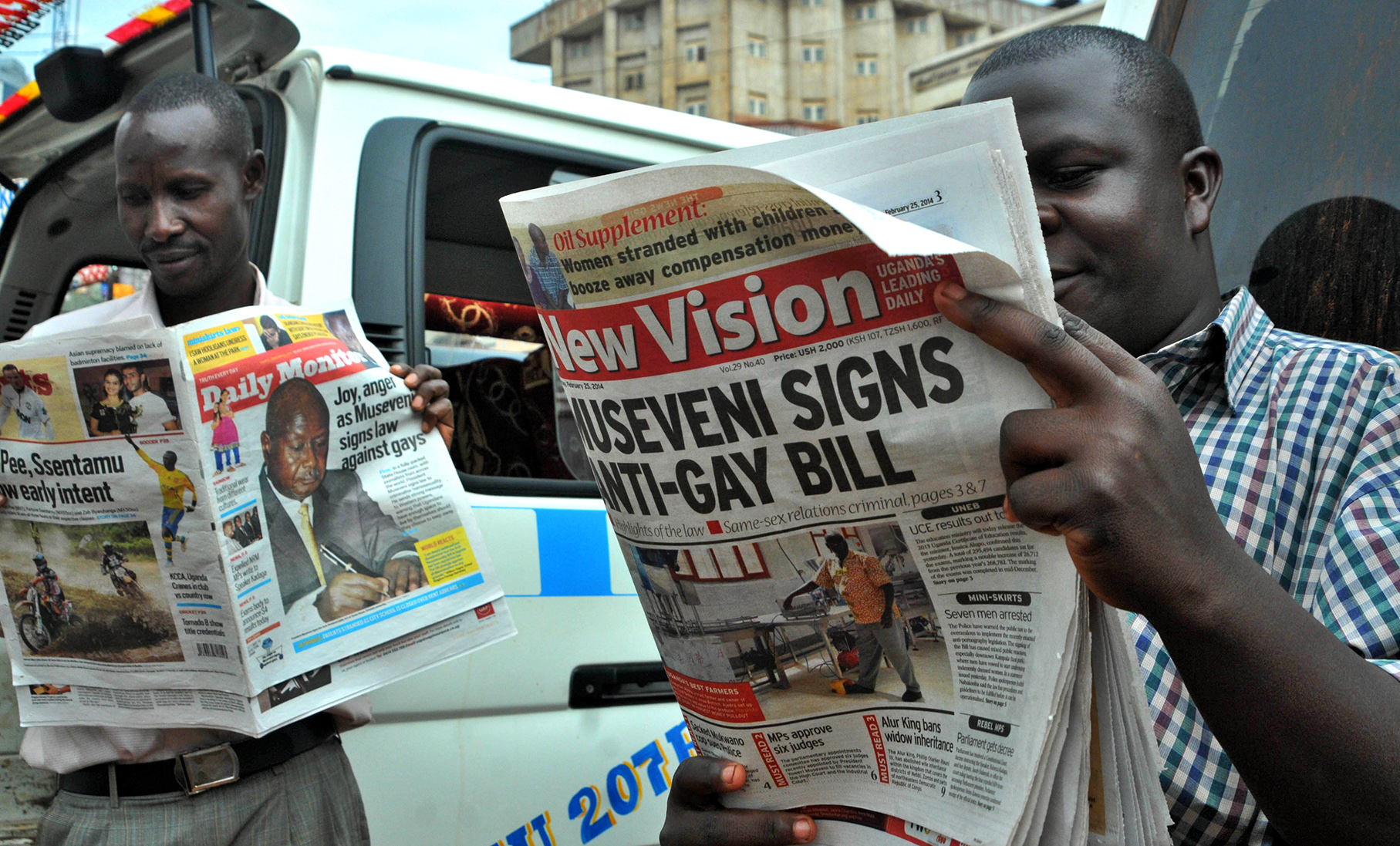
Ugandans read daily newspapers on 25 February 2014 with headlines and images of Ugandan President Yoweri Museveni signing the anti-gay legislation in Kampala on 24 February 2014. (Photo: EPA / Ronald Kabuubi)
Tolerance of homosexuals
African attitudes to homosexuality have been much in the news in the past year, with the hard line adopted by Uganda perhaps the most notorious internationally: providing for the death penalty for some homosexual acts has been seen as draconian in the extreme by many countries.
Read more in Daily Maverick: Uganda enacts harsh anti-LGBTQ law including death penalty
However, negative views on homosexuality resonate with many African citizens.
It is evident that most SADC citizens are not tolerant of having homosexuals as their neighbours. This is most marked in Eswatini, Lesotho, Malawi, Tanzania, Zambia and Zimbabwe. Angola, Mauritius, Mozambique, Namibia and South Africa are more tolerant, but this reflects only a quarter of the population.
However, it should be noted that the supreme court in Mauritius has just decriminalised gay sex, so this represents an improvement in tolerance in that country.
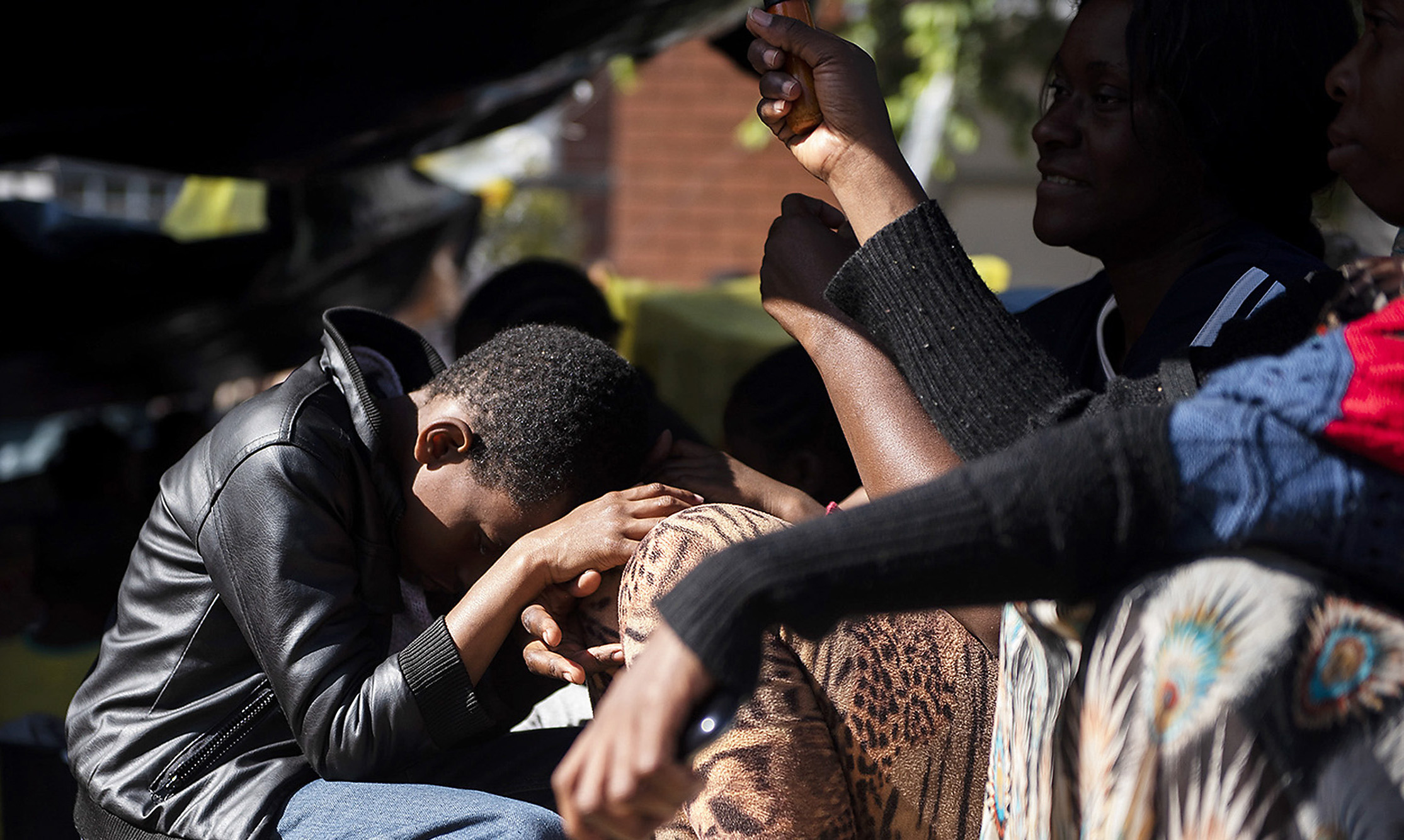
Migrants from several African countries camped outside the offices of the United Nations High Commissioner for Refugees. (Photo: Gallo Images / Alet Pretorius)
What to make of this?
The main report also examined some potentially important demographic factors. Rural folk in the SADC were more tolerant than their urban counterparts when it came to religion, ethnicity and migrants, but more intolerant of homosexuality.
The bright light in all of this is that young SADC citizens are markedly more tolerant than the older population on every aspect, including homosexuality.
There were no differences between men and women, except that women were more tolerant of homosexuality, but bear in mind that the numbers tolerating homosexuals as neighbours are very small.
Read more in Daily Maverick: Mauritius decriminalises same-sex relations in a divided Africa
However, the bright light in all of this is that young SADC citizens are markedly more tolerant than the older population on every aspect, including homosexuality.
Tolerance can be argued to be a fundamental part of the “deep structure” of democracy, both passively in the notion of mutual toleration and more actively in the application of institutional forbearance. Simply expressed, the former refers to attitudes of respect for others, granting to others the freedoms enshrined in virtually every constitution, and certainly the principle in Article 4 of the SADC Treaty. The latter has the very practical application in not gaming political processes to discriminate against particular groups, as, for example, in not skewing the playing field in elections or using legislation to disadvantage opponents.
However, it is encouraging to see that, at least, in their attitudes the young in the SADC seem to evince tolerance towards all the obvious targets of discrimination, as do urban citizens. This suggests that the young may not easily provide the fodder to drive discriminatory political campaigns.
But, as other research has shown, this is against the background of considerable passivity when it comes to participation in social and political life, and not only in the young. This passivity may not be endless, however, and resorting to scapegoats like migrants or homosexuals may not prevent young people in the SADC in future from more strongly demanding their rights and the rights to better lives. DM
Tony Reeler is a senior researcher at the Research and Advocacy Unit and co-convener of the Platform for Concerned Citizens. He writes in his personal capacity.






 Become an Insider
Become an Insider
It would be interesting if such a survey also measured any correlation (or lack thereof) between such attitudes and:
– perceptions regarding their country’s immigration regime (stringent/fair & balanced/lax), and
– perception of the real-world application of their country’s existing immigration laws (thorough & near-universal/mostly functional/corrupt & biased/in utter shambles).
I suspect the results of this may be quite telling.